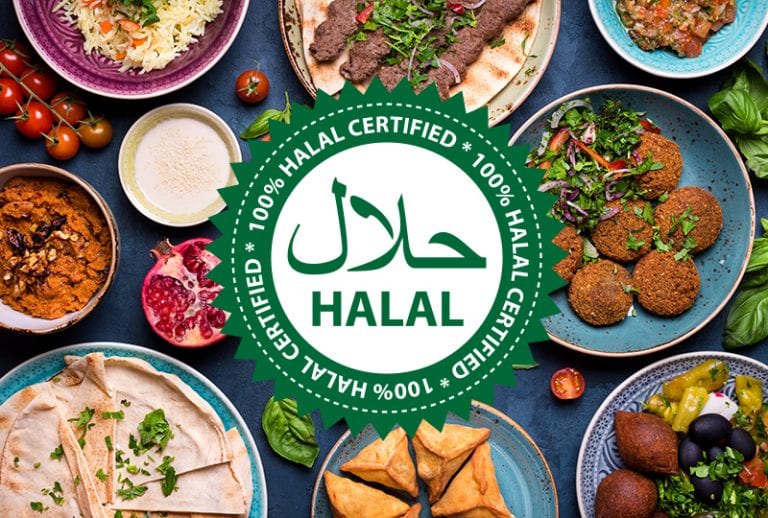
We got to see yesterday that culture dictates the type of food eaten by a particular set of people of the same ethnic grouping and we also said that we cannot talk culture without talking about food. Interesting the angle that we are looking at today is line with food now being a sole factor in the identification of a group or an entire nation with emphasis on religion. I am a Christian, and in particular a catholic and the one thing that is widely known in connection to food is that we consume alot of beer and pork. That in itself is an identification.
The role of food in cultural practices and religious beliefs is one that is complex and is very varied among communities. Understanding the role of food in cultural and religious practices is important as a sign of respect and response to the needs of that community. If you happen to be in a profession like mine where we attend to people’s dietary needs, you don’t want to be caught off guard recommending a type of food that is a taboo in one’s culture however nutritious it maybe. For example, pork is a good source of high biological proteins that are very beneficial for someone’s health, but according to the religious cultural practices of Muslims this cannot be consumed. Recommending this will certainly be an insult to someone practicing that faith. People practicing the Hindu religion do not eat meat or anything that involves taking life, so it is important that you do not assume someone’s religious practices and beliefs, if in doubt, it does not hurt to ask. You may find that the restrictions could go as far as the utensils used. Detailed below are some of the dietary practices of some religions;
Christianity
The various faiths of Christianity include Roman Catholic, Orthodox and Protestant. The regulations governing food and drink differ from one to the next, including some faiths that don’t advocate any restrictions. Individuals may choose to forgo alcohol and may choose whether or not to eat meat.
Some of the food beliefs and practices may include:
- Some Catholic and Orthodox Christians observe several feasts and fast days during the year. For example, during lent, the practice is that the faithful fast or avoid red meat on Fridays, if one must eat meat then it should be white meat like fish.
- Most Protestants observe only Easter and Christmas as feast days and don’t follow ritualised fasting.
- The ritual of communion is regularly celebrated by many Christians and this involves eating bread and drinking wine (or substitutes) to represent the body and blood of Jesus Christ.
- Some Christians don’t drink alcohol at all. These include many members of the Salvation Army and other Protestant churches like the Pentecostals.
- Mormons and Seventh Day Adventists also avoid caffeinated and alcoholic beverages. Many Seventh Day Adventists don’t eat meat or dairy products. Those that do eat meat don’t eat pork.
- Self-denial (of food), or fasting, is sometimes considered to be ‘praying with the body’. It is believed to improve spiritual discipline by overcoming the sensations of the physical world and focusing on prayer and spiritual growth. It may also be used by some Christians as a way of connecting with those people around the world who regularly face starvation or malnutrition.
Islam
Moderation in all things (including eating and dietary habits) is central in Islam. When done according to the way of Allah, daily acts like eating are considered a form of worship.
Muslims eat halal (lawful) foods, which include fruit, vegetables and eggs. Any meat and meat products they consume must be from a halal slaughtered animal, this includes the person who has done the slaughtering too. Milk and dairy foods are halal, cheese may be halal depending on ingredients. Haram (prohibited) foods on the other hand include pork, crustaceans, blood, non-halal animal-derived additives such as gelatin or suet, alcohol and any foods containing alcohol as an ingredient.
Fasting is required during Ramadan, the ninth month of the Islamic calendar, when Muslims must refrain from consuming food, liquids between sunrise and sunset. However some individuals are exempt from fasting, like the pregnant, breastfeeding or menstruating women, children under 12 years, older people and chronically or acutely ill people.

Judaism
Food forms such an integral part of a practicing Jew with Jewish ‘food laws’ dating as back as more than 3000 years. These laws contribute to a formal code of behaviour that reinforces the identity of this community. Judaism requires that food is kosher, meaning the food must meet the standards of kashrut. Kashrut refers to the laws pertaining to food in the Jewish religion, and Kosher means that a food is ‘fit’ or permitted.
The only types of meats acceptable are cattle and game that have cloven hooves and chews curd. Sheep, cattle and goats may be eaten as they meet the requirement, whereas pigs cannot be eaten as, although they have cloven hooves, they do not chew curd. After slaughter, forbidden blood, veins and certain fats must be removed.
Chicken, turkey, goose and duck can be eaten, but other birds are forbidden. Eggs from kosher birds can be eaten as long as they do not contain blood.
Dairy products from kosher animals may be eaten, although meat and dairy cannot be eaten together. There are rules forbidding the mixing and consumption of dairy products with meats. The law requiring the separation of meat and dairy products is strict that it includes the need for separation of utensils used and bread should not contain dairy products. Only fish with scales may be eaten and shellfish is forbidden. Fruit and vegetables may be eaten.
Buddhism
Buddhists avoid harming any living thing therefore killing animals for food is wrong. As a result, many Buddhists are vegetarians. It is believed that Buddha cycled through various animal forms before attaining the form of a human being in his multiple lives on Earth so killing of animals is forbidden. Buddhism proposes that violence or pain inflicted
on others will rebound on you, hence some Buddhists believe that a contributing cause of human aggression is violence against animals.
Hinduism
Hindu dietary customs are based in the belief that the body is composed of fire, water, air and earth, and that the food you eat can either balance these elements or throw them out of balance. Hindus believe that all living things have a soul, and strongly believe in the concept of reincarnation, making Hindus reluctant to kill any living creature, therefore majority of Hindus are lacto-vegetarian (avoiding meat and eggs), although some may eat lamb, chicken or fish. Beef is always avoided because the cow is considered a holy animal, but dairy products are eaten. Animal-derived fats like lard and dripping are not permitted.
I do not know what religious affiliation you belong to but you will be surprised that there are dietary laws that are pertained in there, each having a significance in the upholding of your faith. You may want to find out.

Very insightful thanks for sharing.
Thank you so much, much appreciated
Thanks for teaching us!
Having lived with muslims for the last 4 years, I’ve had to learn what they can and cannot eat. That means being mindful of what food I buy in the house. Everything must be halal just so everyone can eat.
Of course sometimes I’ll buy non-halal foods like pork or alcohol but we have all learnt to respect each others boundaries.
These are important things to know.
Respect is the key here. We respect each other’s boundaries
great post
Thank you so much, much appreciated